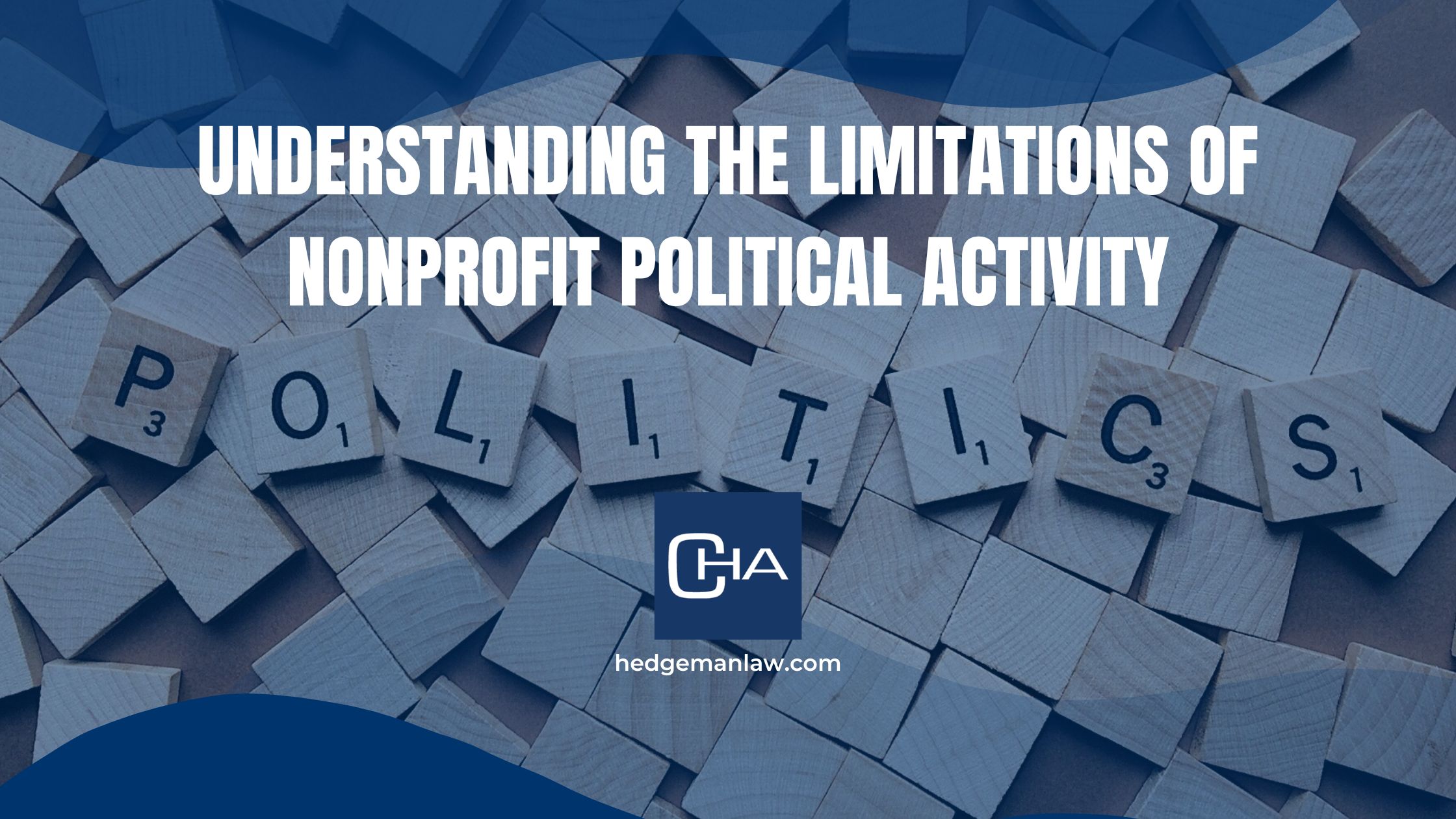Understanding The Limitations of Nonprofit Political Activity

As a nonprofit organization, engaging in political activities is a common and necessary practice. However, there are limitations that must be understood in order to avoid legal issues and penalties. In this article, we will explore the limitations of nonprofit political activity and provide insight into how organizations can stay within legal boundaries.
Nonprofit political activity refers to any activity that seeks to influence political candidates, parties or legislation. It can include lobbying, voter education and mobilization, issue advocacy and campaign intervention. It is important for nonprofit organizations to understand the limitations of political activity in order to maintain their tax-exempt status and avoid legal consequences.
Overview of Political Activity Limits
The Internal Revenue Service (IRS) has strict rules and regulations for 501(c)(3) organizations regarding political activities. These organizations are prohibited from participating in any partisan political activity, endorsing or opposing candidates, and contributing to political campaigns. Failure to comply with these rules can result in the loss of tax-exempt status and penalties. From the IRS website, “Under the Internal Revenue Code, all section 501(c)(3) organizations are absolutely prohibited from directly or indirectly participating in, or intervening in, any political campaign on behalf of (or in opposition to) any candidate for elective public office.”
Activities Permitted by 501(c)(3) Organizations
Nonpartisan activities are permitted by 501(c)(3) organizations, which include voter education and mobilization, issue advocacy, and educational activities allowed by the IRS. It is important to note that any activities that favor one candidate or political party over another are considered partisan and are not allowed.
Voter Education and Mobilization
Voter education and mobilization are crucial activities for nonprofit organizations. Permissible voter education activities include nonpartisan voter registration drives, candidate forums, and publishing voter guides. However, limits on voter mobilization activities exist, and nonprofit organizations must ensure that their activities do not cross the line into partisan political activity.
Issue Advocacy
Issue advocacy refers to activities that support or oppose a particular issue, such as healthcare or environmental policies. Nonprofits may advocate for or against a particular issue as long as that advocacy furthers its mission. Permissible issue advocacy activities include educating the public on policy issues, conducting research and analysis, and mobilizing support for or against specific policies However, nonprofit organizations must be careful not to engage in partisan activities that support or oppose particular candidates or political parties.
Lobbying
Lobbying refers to attempts to influence specific legislation. Permissible lobbying activities include providing information to lawmakers and advocating for specific policy positions. However, limits on lobbying activities exist, and nonprofit organizations must ensure that their lobbying activities do not exceed a certain threshold.
Campaign Intervention
Campaign intervention refers to activities that support or oppose specific candidates. Examples of prohibited campaign intervention activities include making contributions to political campaigns, endorsing candidates, and conducting activities in support of or opposition to specific candidates. Nonprofit organizations must be careful to avoid any campaign intervention activities that could result in the loss of their tax-exempt status.
Case Studies
Real-life examples of nonprofits facing political activity limitations can provide valuable insight into the challenges of staying within legal boundaries. Lessons learned from these case studies include the importance of maintaining a clear separation between political and nonpolitical activities, staying within IRS guidelines, and avoiding any activities that could be interpreted as partisan political activity.
Best Practices for Nonprofit Political Activity
To stay within legal boundaries, nonprofit organizations should follow best practices for political activity, including staying nonpartisan, being transparent, monitoring compliance, and seeking legal guidance when necessary. It is important for organizations to maintain ongoing education and compliance monitoring to avoid any potential legal issues.
Nonprofit organizations play an important role in shaping public policy, but they must be aware of the limitations of political activity to avoid legal issues and penalties. By following best practices and staying within legal boundaries, nonprofit organizations can continue to advocate for important issues and maintain their tax-exempt status.
